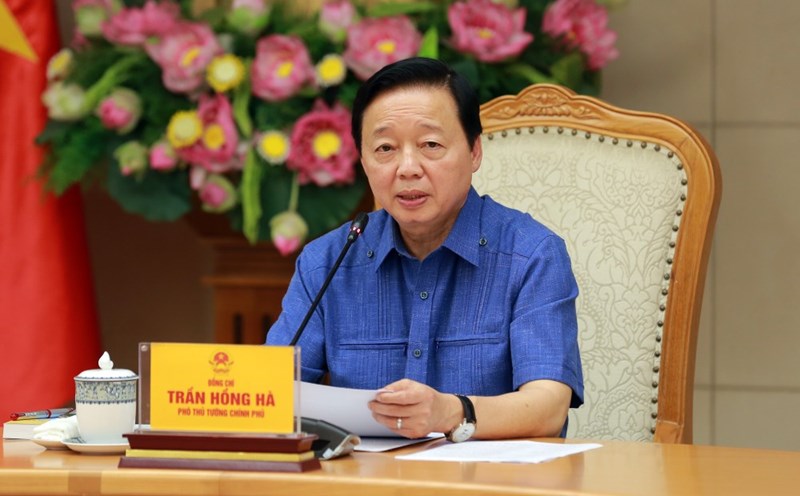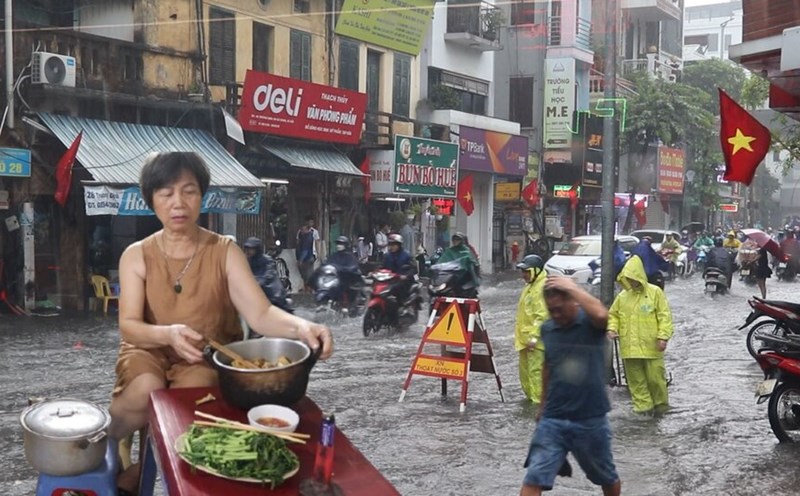After 1 year of implementing the 2024 Land Law, in addition to the achieved results, many shortcomings and problems have been revealed, requiring continued research, amendments and supplements to suit reality and promote socio-economic development.
To promptly remove "bottlenecks", the Government on August 13 met with ministries, branches and localities to give opinions on the draft Land Law (amended).
At the meeting, the Ministry of Agriculture and Environment pointed out many shortcomings and problems that need to be amended and supplemented soon. First of all, the current land use planning and planning system is not consistent with the 2-level local government organization model.
The 2024 Land Law has allowed places with urban and rural planning to not have to establish separate land use planning, using this planning as a land management tool.
However, in reality, the coverage rate of urban and rural planning nationwide is still low, many areas are not covered according to administrative boundaries, leading to overlap when localities still have to establish land use planning.
Another issue is to stabilize rice-growing land areas according to Conclusion No. 81-KL/TW in 2020 of the Politburo with a target of 3.5 million hectares, higher than actual demand to ensure national food security.
This makes it difficult for many localities to convert the purpose of using rice-growing land to develop industry, trade, services, infrastructure, etc.
Land allocation and lease are mainly done through auctions of land use rights and bidding to select investors according to legal regulations, leading to a lot of time spent preparing for projects. In many cases, investors with real capacity cannot be selected, causing project progress to be prolonged, affecting the ability to attract investment.
In particular, large-scale, complex projects need investors with outstanding capacity, but the bidding mechanism makes it difficult to select. The form of annual land lease also limits the ability of investors to account for business and mobilize capital, especially in the fields of health, education, culture, society, and accommodation services.
In addition, the 2024 Land Law still does not have clear regulations on land acquisition to implement urban renovation projects, urgent projects serving political tasks, foreign affairs, free trade zones, and international financial centers.
The lack of this land acquisition mechanism has caused difficulties in land access and project implementation, and at the same time affected production and business when there was no site to continue operations.
The reality also shows that the situation of "suspended projects" is due to part of the land area being unable to be agreed upon for transfer, leading to waste of land resources, slowing down investment progress.
Moreover, the regulation on land recovery must not be consistent with the urgent requirements of many important projects after approving compensation, support and resettlement plans, causing difficulties in organizing implementation.
Regarding land prices, the State needs to control and decide on land prices in the primary market, however, currently, land valuation depends on secondary market land prices and consultation results from specialized units, leading to land prices not reflecting the true nature of reality.
The method of valuing surplus also faces many problems due to dependence on unstable market information. This not only affects land access progress but also increases investment costs, reducing local competitiveness.











